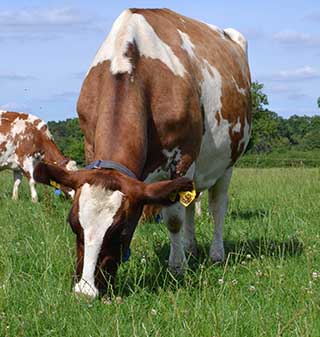
An ORC-led review of about 50 studies has confirmed that most organic crop and livestock systems are more energy-efficient than their conventional counterparts. The difference is greatest when comparisons are made on a unit of area basis, although substantial increases in energy efficiency can also be observed per unit of product within most of the comparative studies reviewed. The difference between organic and conventional production tends to be greatest for grassland systems, due to the relative efficiency of producing grass in conjunction with clover. There are some important exceptions where organic performs worse. For example, potatoes where a lower yield reduces efficiency and other vegetables that require flame weeding. Within livestock production, organic pig and poultry production systems also perform worse where poor feed conversion and higher mortality rates can lead to lower energy efficiency overall. Despite this it is possible to state that most organically managed cropping and grazing-livestock systems will require less energy than conventional systems, on a unit area or weight of product basis. This is largely due to the absence of manufactured mineral nitrogen fertiliser and a lower levels of imported feed. For more information or to download a copy of the paper please go to the following link (subscription required to access full paper): http://journals.cambridge.org/action/displayAbstract?fromPage=online&aid=9156585
This review paper forms part of a part-time PhD exploring the effects of a 100% conversion to organic farming in England and Wales. ORC gratefully acknowledge the support of the Ratcliff Foundation for this research.
